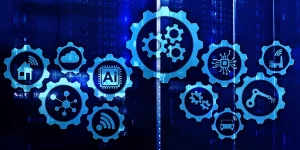
- Overview
- Curriculum
- Feature
- Contact
- FAQs
Building Strategic Influence in Matrix Organizations
Python as a programming language plays a crucial role in the adoption of Machine Learning (ML) in the business environment. The application of the Python language in AI-based technologies is vast, and is used prominently in data science technologies.
Machine Learning with Python course discusses concepts of the Python language such as file operations, sequences, object-oriented concepts, etc. along with some of the most commonly leveraged Python libraries like Numpy, Pandas, Matplotlib, etc. The course will then move on to introduce learners to the detailed mechanisms of Machine Learning. Learners will understand in detail the significance of the implementation of Machine Learning in the Python programming language, and leverage this knowledge in their role as data scientists.
After completing the course, one would have learnt about tools to train machines based on real-world situations using Machine Learning algorithms, as well as to create complex algorithms based on concepts related to deep learning and neural networks. During the latter stage of the course, learners will be introduced to real-world use cases of Machine Learning with Python for a holistic learning experience which would prepare them to create applications efficiently.

Why You Shouldn’t Miss this course
- How to install and import libraries
- Methods of handling various data types such as categorical, ordinal, and encoding
- Data visualization
- Distinguishing between Artificial Intelligence, Machine Learning, and Deep Learning
- Working with data in real time
- Implementation of Machine Learning algorithms
- Implementation of Deep Learning algorithms
- Types of Time Series data (univariate and multivariate)
- Performing text and sentiment analysis
- Business analytics
Recommended Experience
- Basic understanding of computer programming languages is mandatory
- An understanding of the fundamentals of data analysis would be beneficial
Structured for Strategic Application
Designed for Immediate Organizational Impact
Includes real-world simulations, stakeholder tools, and influence models tailored for complex organizations.
Frequently Asked Questions
Find details on duration, delivery formats, customization options, and post-program reinforcement.



